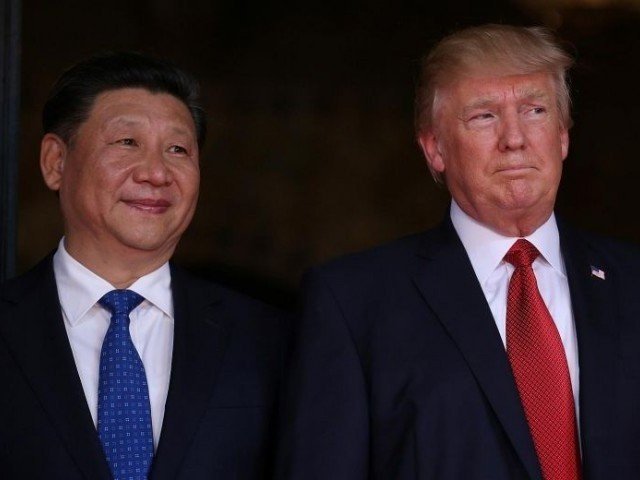
- ARAB NEWS
- 13 Jul 2025

Crises tend to bring out either the best or the worst in both people and countries. In the already fraught relationship between China and the US, the COVID-19 pandemic is definitely bringing out the worst.
Ties between the world’s two biggest economies, particularly in relation to trade, have been on a downward trajectory since Donald Trump took up residence in the White House. The president has demanded that China honor fair trading practices, respect intellectual property rights and open up its investment market — all areas in which Beijing has been less than straightforward.
With the pandemic, the rhetoric has become even more belligerent. Trump accuses China of covering up the original outbreak and concealing information that could have curbed its spread, and he is not alone in that. However, he has infuriated Beijing by encouraging speculation, based on no apparent evidence, that the virus originated in a Wuhan laboratory.
Neverthless, despite this toxic atmosphere, there were green shoots. The Trump administration has been working on a new trade agreement with China for the better part of two years. Phase 1 of the agreement appeared to be coming to fruition, and both Chinese Vice Premier Liu He and US Treasury Secretary Steven Mnuchin have spoken of encouraging progress in the most recent “virtual” negotiations.
Last week it all unravelled, in rather spectacular fashion. Trump declared that not only did he have no wish to talk to Chinese President Xi Jinping, he was also considering cutting off relations with China altogether. These were harsh words, and warrant a closer look at the US-China relationship.
The Biden and Trump presidential election campaigns are competing to condemn China, reflecting and reinforcing the public mood in the US, where the latest polls suggest that two thirds of the population view China critically.
And it is not just about trade. The US has banned the Chinese technology company Huawei from supplying equipment for its communications networks, and vice versa, and encouraged its allies to do the same. Prevented from using software such as Google’s Android mobile operating system in their phones, Huawei will simply build their own, making China’s position even stronger in the long run.
Crises tend to bring out either the best or the worst in both people and countries. In the already fraught relationship between China and the US, the COVID-19 pandemic is definitely bringing out the worst.
Cornelia Meyer
Then there is the defense angle, which is particularly important to America’s allies in Asia. China continues to assert its position in the South China Sea with increasing aggression. Beijing’s confidence may be partly explained by a report on Saturday in The Times of London, revealing that according to Pentagon “war games” the US would lose any naval confrontation with China, and would struggle to defend independent Taiwan from invasion. Since Xi wants Taiwan to be part of greater China by 2050, they must be worried in Taipei.
So this is a new cold war, many say — but by no means all. The security analyst, author and former diplomat Anja Manuel argues that we are dealing not with a new cold war, but with a bipolar world. The Soviet Union was economically inward looking, trading with few outside the Warsaw Pact and some other allies. China is economically one of the most outward looking countries, a trading nation with ambitious programs such as the Belt and Road Initiative and institutions such as the Asian Infrastructure Investment Bank.
Manuel views US policy toward China as too negative, and sees little merit in limiting Chinese companies’ access to the US market or denying students entry to US universities. She suggests a more positive outlook in which the US works with its allies on research and development in strategic sectors, even banning China from purchasing strategic proprietary technology where appropriate.
COVID-19 is a global problem, and the world would benefit from a global response in which the two leading economies cooperated on that specific issue, as they did with Ebola and SARS. As for the overall economic and security relationship between the US and China, measured and well thought through policies and actions are important to maintaining economic stability and peace in the long run.
The US and China may be the poles in our new bipolar world, but they are not alone, and what they do affects the rest of us because of their sheer size and power. Power brings with its responsibility. Let us hope the two dominant players remember that.